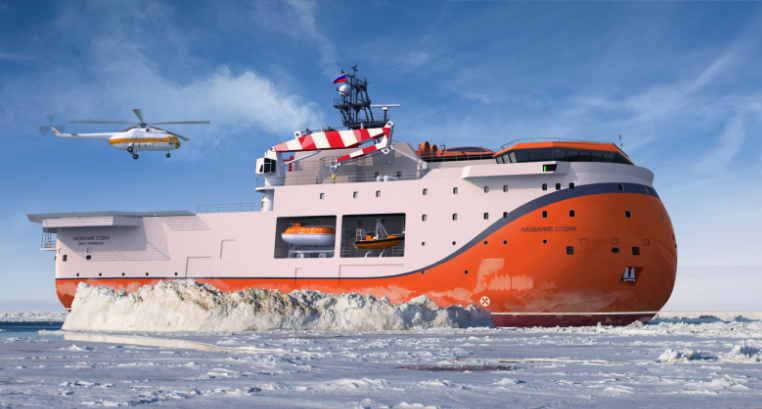Space communications for new knowledge: Russia’s ice-resistant platform North Pole will study the Arctic using RSCC satellites
On board the ice-resistant platform, there are 15 scientific laboratories for comprehensive research of the Arctic’s natural environment. The platform can arrive at the operation site without an icebreaker, drift in the Arctic Ocean for up to two years and return back to the port. During the drift, a mobile camp with laboratory cabins will be set up on the ice, where scientists will conduct research in the natural environment. The North Pole platform will become a key element of the Arctic Geographically Distributed Observatory, which already includes the Cape Baranov Ice Base Research Station, the Russian Research Center on the Svalbard Archipelago, and the Tiksi Hydrometeorological Observatory.
According to Alexey Volin, Director General of Russian Satellite Communications Company, “the development of the Arctic is impossible without satellite communications, more than 90% of its territory can be covered by communications only using space vehicles in geostationary orbit. Today, Russian communications and broadcasting satellites are able to fully meet the needs of people permanently residing in this territory, shift workers, geologists and researchers, river and sea vessels. More than 60 hard-to-reach stations of Roshydromet, the Russian Arctic National Park, the Russian Center for Arctic Development, the Northern Sea Route Administration, as well as 28 ice-class ships operate via RSCC satellites. We proceed from the fact that in the next 8-10 years the Arctic will develop intensively, and we are fully prepared for the growth in data traffic and increased demand for satellite services, which, according to our estimates, can grow by 5,000 MHz.”
*This material was prepared using information from the Arctic and Antarctic Research Institute.
